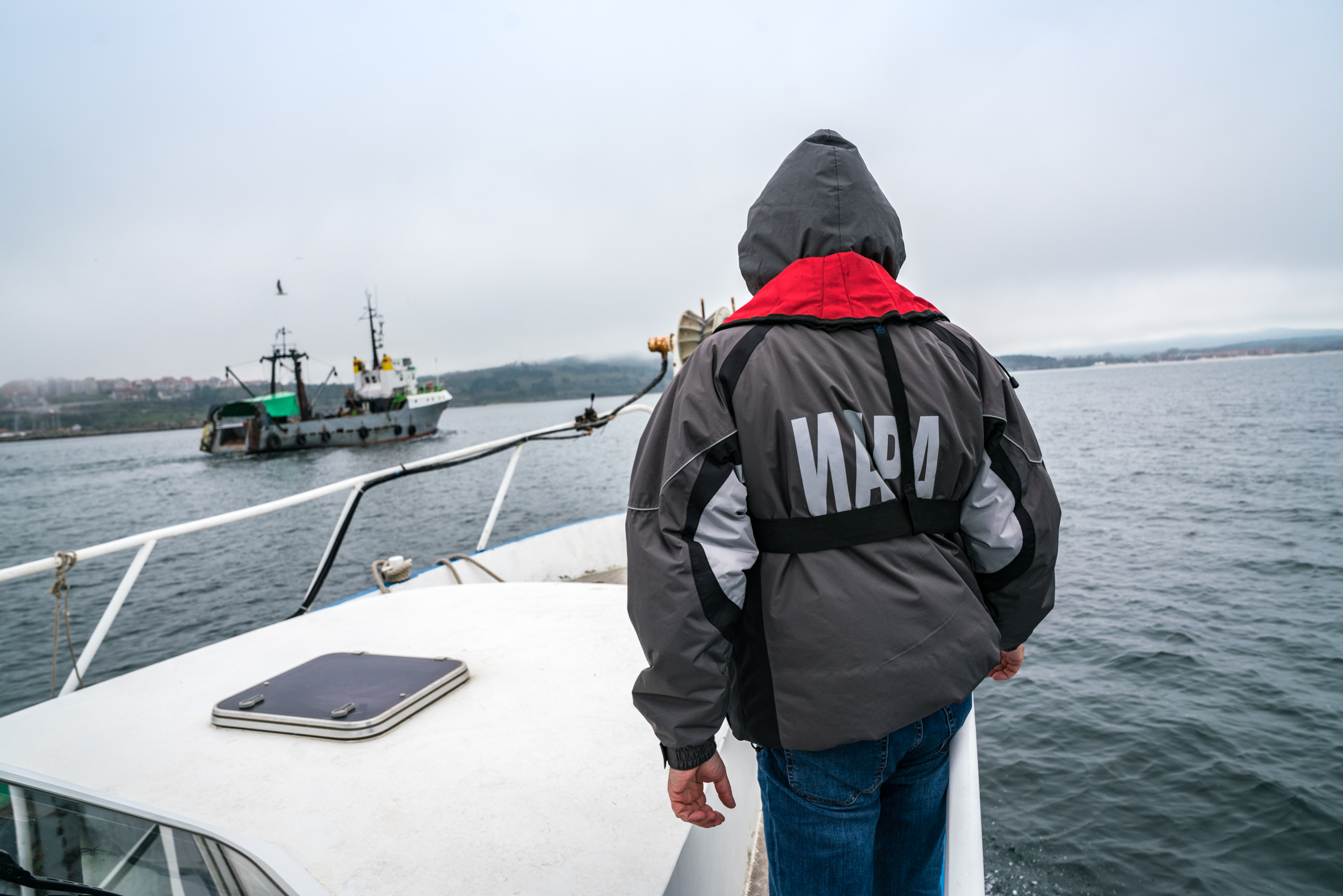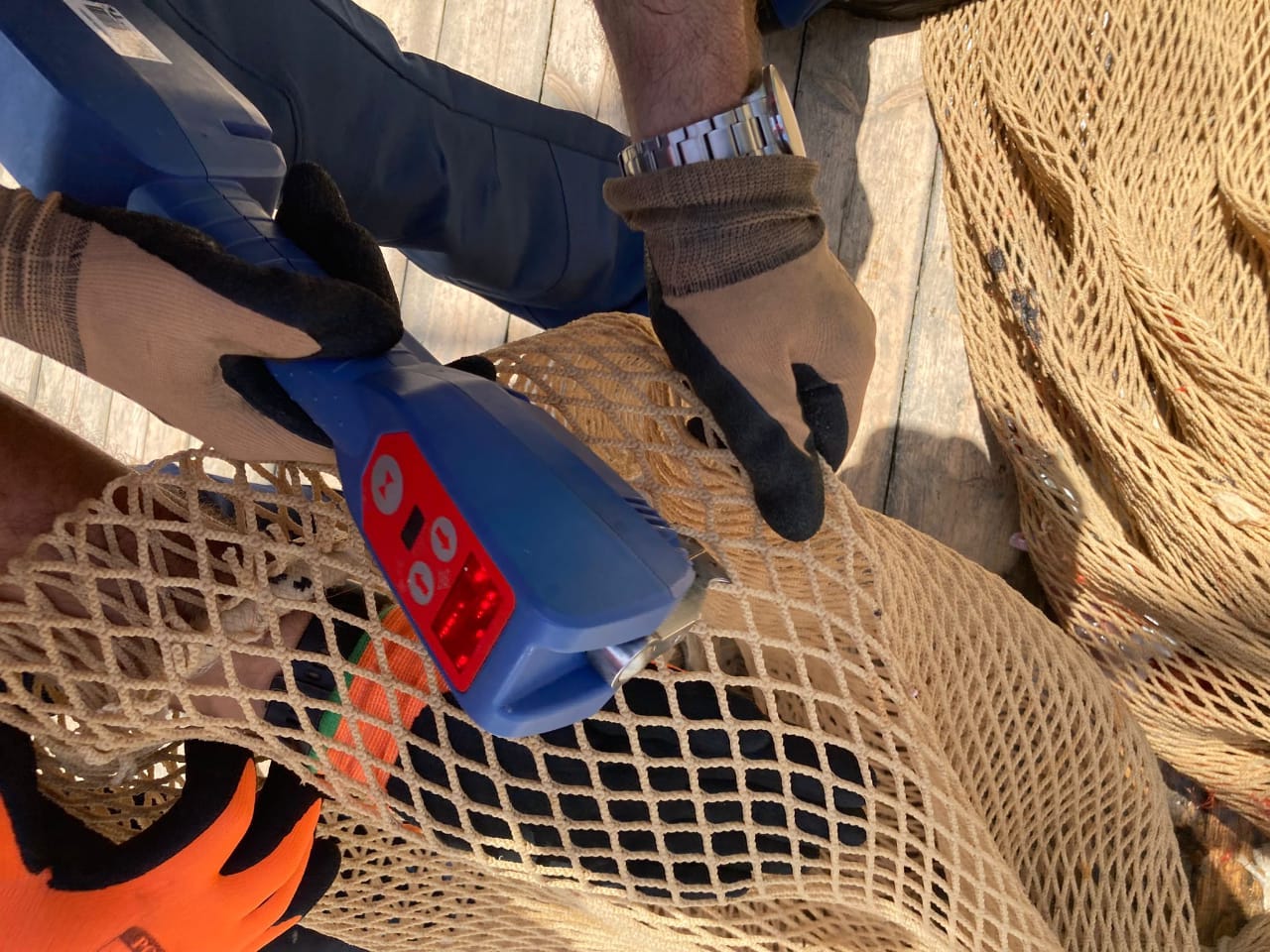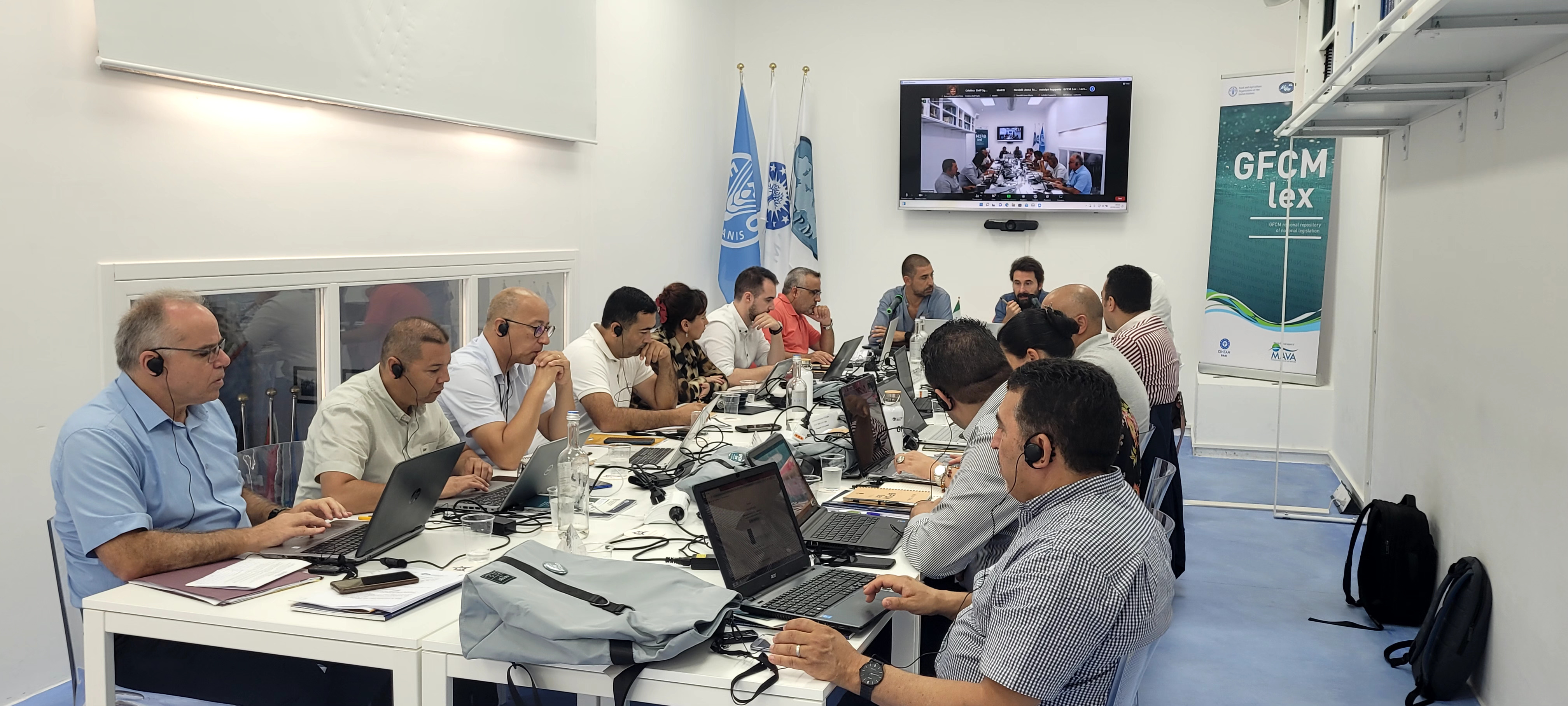Management measures, monitoring systems and innovative technology: how the GFCM fights against illegal, unreported, and unregulated fishing

The International Day for the Fight against Illegal, Unreported and Unregulated (IUU) Fishing, observed on June 5, was created to both raise awareness about these harmful practices and to celebrate active efforts seeking to bring them to an end.
Illegal, unreported and unregulated fishing activities represent a danger for the environment, the livelihoods of fishers, and countries’ economies as a whole. These activities threaten the sustainability of fisheries by aggravating the status of marine living resources, while simultaneously causing annual losses that could reach up to USD 25 billion to the global economy. IUU fishing has the potential to inflict significant damage on coastal communities by disrupting local employment and supply chains and jeopardizing decent working conditions. Furthermore, IUU fishing affects the capacity to gather information on the status of fisheries stocks by skewing data on real catches, landings, and other fishing activities.
©GFCM/Pier Paolo Cito
Mediterranean and Black Sea countries were instrumental in the establishment of this international day to highlight efforts made in the fight against IUU fishing, and they are now more ambitious than ever to eradicate this practice in the region.
More management measures to better combat IUU fishing
The GFCM countries adopt management measures on a yearly basis. While some measures cover the entire Mediterranean and Black Sea, there has been a recent increase in measures focusing on subregions, such as the Adriatic, Levant, and Alboran Seas. In 2022 alone, nine subregional measures were adopted across the Mediterranean and the Black Sea.
Management plans combine all measures to ensure targeted results. In recent years, the GFCM increased the number of active management plans from five to ten. Thanks to the robust network of national laws implementing these management plans, over 9 000 vessels in the Mediterranean and the Black Sea are registered within these plans and subject to their regulatory provisions.

©GFCM Pier Paolo Cito, ©GFCM Claudia Amico
“Successfully implementing subregional management plans requires the alignment of domestic laws across several countries,” said Arian Palluqi, from the Albanian Ministry of Agriculture. “In 2021 and 2022, with the support of the GFCM, Albania adopted multiple ministerial orders to ensure our laws reflect the most up-to-date versions of the GFCM multiannual management plans affecting demersal and pelagic stocks in the Adriatic Sea,” he added.
What are some of the most effective management measures?
A first set of measures includes restrictions on the minimum harvesting size, as well as closed fishing seasons for a multitude of species, from blackspot seabream in the Alboran Sea to demersal stocks in the Strait of Sicily. The GFCM also established 10 Fisheries Restricted Areas (FRAs), which provide protection for vulnerable species and improve conservation of stocks and deep-sea ecosystems.
Other measures include targeted tools to end IUU fishing. Vessel monitoring system (VMS) provides real-time data on the position and activity of single vessels, thus helping law enforcement manage fish stocks and eliminate IUU fishing. Several GFCM countries have recently gone from having no functioning national VMS to establishing fully operational systems.

©GFCM Claudia Amico
“Technical assistance by the GFCM was essential to achieving these results, as was the adoption of national legislation based on GFCM recommendations,” said Imad Lahoud, Head of the Lebanese Fisheries Department. “In general, the GFCM requires VMS for vessels above 15 meters in overall length, but in Lebanese waters we are currently piloting the use of an inshore vessel monitoring system (I-VMS) onboard fishing vessels with overall length less than 10 meters targeting round sardinella.”
Every year, the GFCM countries also compile lists of the vessels authorized to fish for specific species in designated areas, as well as a list of vessels that are known to have engaged in IUU fishing.
To ensure fishers observe all these measures, joint inspection schemes track and identify non-compliant vessels. Inspections have significant deterrent effects on IUU fishing, while simultaneously fostering a culture of cooperation and compliance among officials from the entire region.
GFCM-Lex empowers stakeholders in the fight against IUU fishing
In order to raise awareness about active management measures, the GFCM created an online repository of fisheries legislation called GFCM-Lex. This initiative provides fishers, practitioners, administrators, scientists, law specialists, and any other stakeholders with easy, multilingual, and comprehensive access to fisheries legislation in the region. As it is built on a wiki engine, GFCM-Lex enables a high level of engagement by informed partners.
“By employing the GFCM-Lex methodology, we identified implementation gaps between GFCM recommendations and our national legislation and amended laws and regulations to bridge these gaps. This knowledge management toolkit enabled us to harmonize our national legislation with both the GFCM legal framework and other international commitments,” said Hamadi Mejri, the GFCM-Lex focal point for Tunisia.

Important advances are also being made in Egypt, which in 2021 adopted its first new framework law on fisheries in nearly four decades, as a result of the work of national authorities towards integrating regional and international regulations in the national law, with the support of the GFCM Secretariat. This law includes provisions on fisheries license scheme, on tracking system and related technologies, as well as requirements that will contribute to the implementation of the ecosystem approach to fisheries, which is central to the GFCM’s marine conservation efforts.
In the fight against IUU, the GFCM also trains national stakeholders on active monitoring, control and surveillance (MCS) measures. In September 2022, representatives from the fisheries and social protection authorities from six Mediterranean countries participated in a workshop on welfare measures impacting fishers which contributed to enrich GFCM-Lex with the social protection measures available to fishers in several countries.
